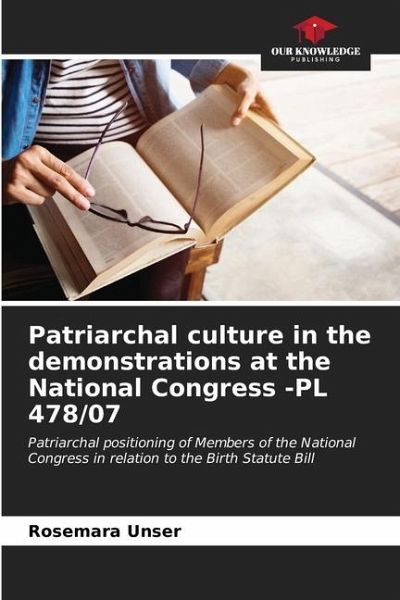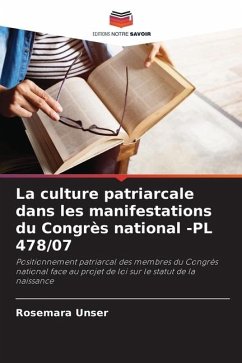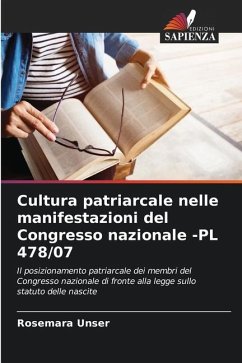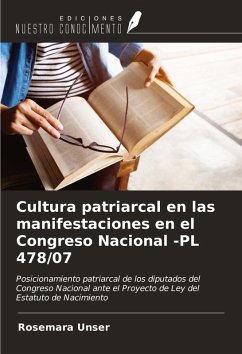
Patriarchal culture in the demonstrations at the National Congress -PL 478/07
Patriarchal positioning of Members of the National Congress in relation to the Birth Statute Bill
Versandkostenfrei!
Versandfertig in 6-10 Tagen
37,99 €
inkl. MwSt.

PAYBACK Punkte
19 °P sammeln!
Patriarchal culture has dictated rules of social coexistence that go beyond the dictates of the Democratic Rule of Law and have curtailed women's human rights. The manifestations of the Brazilian National Congress in relation to the Statute of the Unborn Child Bill, patriarchal positions and how this has interfered with women's human rights. Using the deductive method, historical, archaeological, sociological and anthropological analyses, as well as the interpretation of narratives from direct documentation, we chose to begin the study with the historical trajectory and identity construction o...
Patriarchal culture has dictated rules of social coexistence that go beyond the dictates of the Democratic Rule of Law and have curtailed women's human rights. The manifestations of the Brazilian National Congress in relation to the Statute of the Unborn Child Bill, patriarchal positions and how this has interfered with women's human rights. Using the deductive method, historical, archaeological, sociological and anthropological analyses, as well as the interpretation of narratives from direct documentation, we chose to begin the study with the historical trajectory and identity construction of what it means to "be a woman", and studying the influence of patriarchal culture on society and women's lives and how Feminist Movements have organized themselves in the face of this, and finally, in the context of women's reproductive rights, to analyze the positions of Members of the National Congress in relation to the Bill creating the Statute of the Unborn Child, in order to see if there are any manifestations of patriarchal culture. Thus, from the analysis of the statements, it can be seen that patriarchy permeates time and still manifests itself strongly.












